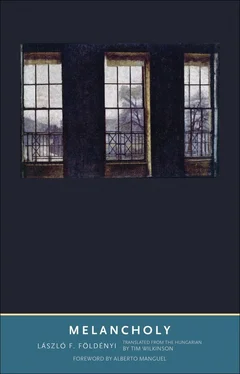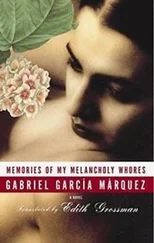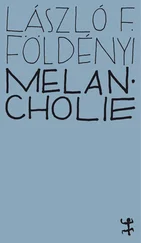The cosmically based doctrine of the elements and the unity of the empirical humors comprised everything that could be said about humankind in classical antiquity. But in parallel with the cracking of the unity of the universe, mankind gradually slipped out of the tethers of this universe: the cosmos and the individual (body and spirit, mind and praxis) appeared as two poles. Instead of being concentric enclosures, they ended up at the opposite ends of a straight line. The connection was maintained; only its nature changed: in place of an organic interdependence, the universe became a system of correspondences: everything corresponded with something, but nothing contained everything within itself. Typical of the later classical, Hellenistic theory of melancholy was a growing overcomplication and the ever-more prolix, diffuse, meandering, and inconclusive literature devoted to the subject (numerous treatises were written, including a famous, partially extant two-volume work by Rufus of Ephesus in the time of Trajan). The Hippocratic concept of melancholia lost its cosmic background and continued to live as an empirical theory of humors. The Aristotelian concept, on the other hand, seemed to be forgotten: the idea that physical extraordinariness and intellectual excellence might be associated with despair was alarming, and the spirit of the age did all it could to hold melancholy at bay. Galen revived the Empedoclean theory of the four elements, supplementing it with Hippocratic humorism and adding ethical correspondences to the humors, and thus the outlines of a doctrine of the temperaments began to emerge. In the second half of the fourth century CE, Helvius Vindicianus, a physician friend of St. Augustine, devised a typology, a scheme of categorization totally alien to classical antiquity. The likes of it were again encountered in a sixth-century treatise entitled On the Humors: by that stage, the four temperaments indicated four normal states. The taming of melancholia was complete: on the one hand, if it was reminiscent of melancholia in the Aristotelian sense, then it was purely a matter of an illness, but on the other hand, everyone could be categorized as belonging to one type or another. The excrescences had to be lopped off to make the world snug for everyone. Having accomplished this, theorists could expand the domain of the individual temperaments with impunity and without affecting the typology: the basic principle, that is to say, the averageness or typicality, was left undisturbed. Thus, each humor corresponds with one element of the cosmos, one season, one age of life, a time of day, a metal, a mineral, a color — indeed, from the ninth century on, a planet as well. A fully crystallized doctrine of the temperaments saw the light of day in the first half of the twelfth century: the first time the four words “phlegmatic,” “melancholic,” “sanguine,” and “choleric” make an appearance is in an encyclopedic work on natural philosophy with the title of De philosophia mundi , by William of Conches, and although the natural-historical foundations of humorism had been demolished by the discovery of the circulation of blood in 1628, the theory lives on in the mind of the public to the present day. The four kinds of temperament lock people into four castes, from which it is impossible to step out. In the classic notion of melancholia, one’s freedom of temperament, interpretation of existence, and choice of fate did not exclude one another: in contradistinction, Hellenism saw persons as being subject to their own temperaments, incapable of surpassing themselves. (We characterize persons as melancholic or choleric, and often feel that with this adjective their whole existence can safely be placed in the parentheses: we are no longer curious about who they are or what kind of worldview or existential condition induced them to become melancholic. We are interested only in how melancholia as their defining feature can be shown in every facet of their behavior.) A person is no longer master of himself but a prisoner of his own being from birth, whether healthy or not (since antiquity, melancholia could mean both average health and sickness that departs from the average , but never health that departs from the average ). A person locked into his own created nature is no master of either himself or his existence, but in every respect is of a lower order than his creator (or “merely” his destiny), and by becoming resigned to this necessity, he gives up, from the outset, trying to force open the limits of existence. William of Conches unwittingly and very astutely touched on the essence of humorism when he called the four temperaments defects (“quia corrumpitur natura”—“which are of corrupted nature,” as quoted in Hellmut Flashar, Melancholie und Melancholiker in den medizinischen Theorien der Antike , 115). The humors of prelapsarian humankind became mixed after the Fall, or in other words, the four temperaments were four kinds of manifestation of original sin. No person is without a temperament; there is no temperament without sin. We are in the Middle Ages.
How are Saturn’s offspring, the melancholics, to be identified? A late-medieval manuscript gives the following response: melancholics have dark, possibly yellowish-green skin; they have small, deep-set eyes that rarely blink, they are constantly downcast, gazing at the ground; their beards are scanty; their shoulders are bowed; they are sexually weak; they are lazy, slow on the uptake, although a thing that once catches their attention is never forgotten; they bore other people and rarely laugh; they dress carelessly; they cheat, steal, are ungrateful, stingy, and generally misanthropic in character (see Klibansky, Panofsky, and Saxl, Saturn and Melancholy , 61). Another author has it that melancholics are brutish, vile persons, and melancholia (one can read in a fifteenth-century manuscript in Tübingen) is the vilest of the temperaments, the most fallible, and the sickest (see Schönfeldt, Die Temperamentenlehre in deutschsprachigen Handschriften des 15. Jahrhunderts , 61). In the seventh century, Isidore of Seville endeavored to derive the word malus (bad) from melancholia , the Greek name for black bile, and this perception anticipated a widespread belief several centuries later: melancholia had to be banished into the domain of the most damnable notions and phenomena.
Yet if we leave behind the society of robbers and killers (because in the Middle Ages they too were held to be melancholic) and turn our attention to men of letters, we encounter another interpretation of melancholia. This was hardly more favorable than the above, but telling nevertheless: “And all those will fall into melancholy,” wrote Constantine the African of Carthage in Libri duo de melancholia in 1080, “who overexert themselves in reading philosophical books, or books on medicine and logic, or books which permit a view [theory] of all things; as well as books on the origin of numbers, on the science which the Greeks call arithmetic; on the origin of the heavenly spheres and the stars, that is, the science of the stars, which the Greeks call astronomy; on geometry, which bears the name of ‘science of lines’ among the Arabians, but which the Greeks call geometry” (quoted in Klibansky, Panofsky, and Saxl, Saturn and Melancholy , 84). The cause (not a symptom!) of melancholia is excessive intellectual effort ( studium vehemens —passionate study), but this is concentrated in the singular purviews of scholarly research, being directed at “ultimate” matters, the origins, the beginnings, the kinds of things, by the unraveling of which everything can be cleared up. A melancholic’s thinking leaps from the domain of earthly matters to the sphere of the imagination — a world of equivocal, undemonstrable, dubious ideas. “Great is the force of imagination,” Arnald of Villanova wrote in the thirteenth century, “and much more ought the cause of melancholy to be ascribed to this alone, than to the distemperature of the body” (quoted in Robert Burton, The Anatomy of Melancholy , partition 1, sec. 2, member 3, subsec. 1, 253). The Stoics had already pointed to a connection between melancholia and falling ill (Sextus), and this idea was picked up unaltered by the early Christians (for example, Nemesius in the fourth century). Melancholia no longer led toward an understanding of the deepest problems of existence, but became a concomitant of vain and fruitless speculation. Instead of being an undecipherable secret, existence displayed a clearly arranged order guaranteed by God. Those unwilling to accept this and trust exclusively their own reason would get lost, step by step, in the gloom: the divine meaning of existence lost its validity for them, and they were left to themselves. Since St. Augustine, Christian theology has regarded a self that deliberately shuts itself up as the source of sin ( De civitate Dei , bk. 16, 2), amounting to a willful separation from God. Neither the visible nor the invisible Church would accept a skeptic who put mercy at risk by calamitous argumentation. Plummeting from the frames of the rational universe, he became a heretic, an easy prey for the devil. According to Constantine the African, a melancholic is “convinced of the fearfulness and horror of things that are not to be feared, thinks about the kinds of things it is unnecessary to reflect on, and perceives things that do not exist” (quoted in Winterstein, Dürers “Melancholie” im Lichte der Psychoanalyse , 12), though he also classifies as melancholic people who obsessively fix their eyes on God and care about nothing else. If we do not wish to expose ourselves to the temptation of melancholy, then we must accept not only the existence of God but also the uniqueness of the world that he has vouched for, and we must live with the fact that sin is shared, redemption is shared, and mercy is shared. A melancholic is physically the frailest, the least viable — yet more wretched than this physical debility is his mental state, and, arising from this, his loneliness and inclination to damnation. A melancholic racks his brain over unnecessary things, general opinion has claimed for a millennium or more. And anything that is an unnecessary, a dispensable part of the universe, and nevertheless manages to find its way into being has a disruptive effect. Excess corrodes existence and its closedness. Since existence is whole and, thanks to God’s grace, extends to everything, an excess can only be imagined as a lack. The Middle Ages, living as it did under the spell of a horror vacui , was not inclined to tolerate either a gap or an excess. If, nevertheless, melancholics thought about the sorts of things that were unnecessary to think about, then in the final analysis they fantasized about nothing . They were vehicles of an unresolvable contradiction; they were antagonists of a world that did not recognize nothingness and was thus unable to accept lack as a “natural” part of existence. Brooding melancholics render the universe itself problematic: even if unwittingly, they turn the unknown into an essential element, a final cause of the world. In other words, they set it in God’s place. Although nihilism was not considered a characteristic feature of melancholia in the Middle Ages, it lurked deep in the brooding restlessness of the soul. It explained the proneness to suicide among melancholics, which was noted by Avicenna (though he ascribed it to moral corruption), and suicide was far from common in those days. 1A melancholic questions everything, and rejects everything; he is left to himself, having nothing to believe in, and therefore he does not know how to deal with divine mercy arriving from outside. But boundless despair and boundless loneliness do not preclude God’s boundless love: the example of great mystics is evidence that despair spreading over everything may be coupled with an unequalled intensity of God worship. The fact that they turned nothingness into a god explains the mystics’ melancholia, which in the Middle Ages was viewed as requiring not only a medical but also an “ideological” treatment: melancholia, like mysticism, has a disruptive effect in a culture of closed minds. In the eleventh century, Constantine the African wrote in his treatise about melancholia:
Читать дальше












